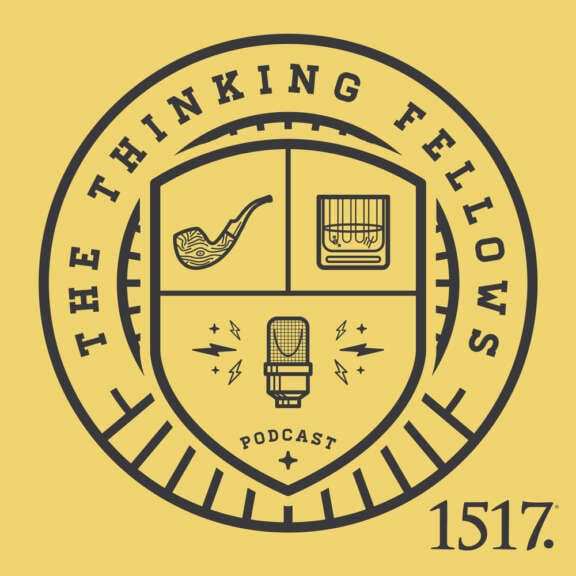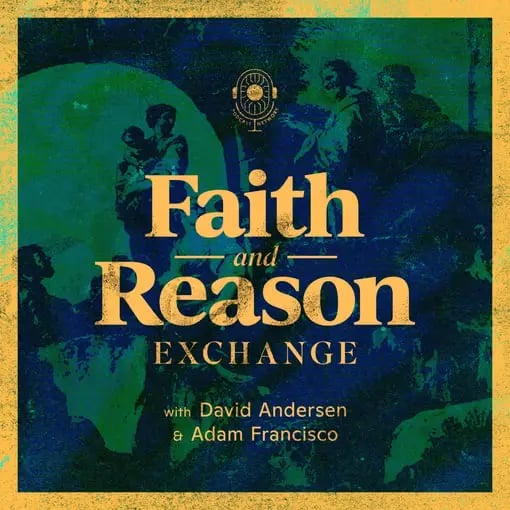In this week's episode, Scott, Bruce, and Caleb discuss the doctrine of election. They emphasize the importance of God's electing through his Word.
Podcasts
Each 1517 Podcast is dedicated to delivering Christ-centered content through weekly, monthly, and seasonal audio platforms. Listen online or on your favorite podcasting app.
Author
- All Authors
- Aaron Zimmerman
- Adam Francisco
- Amy Mantravadi
- Blake Flattley
- Bob Hiller
- Bradley Gray
- Brian W. Thomas
- Bror Erickson
- Bruce Hillman
- Caleb Keith
- Chad Bird
- Chris Rosebrough
- Christopher Gillespie
- Cindy Koch
- Craig Donofrio
- Dan van Voorhis
- Daniel Deen
- Daniel Emery Price
- Darrin Sheek
- David Andersen
- David Rufner
- David Zahl
- Debi Winrich
- Delwyn Campbell
- Donavon Riley
- Doug Klembara
- Edward Killian
- Elyse Fitzpatrick
- Erick Sorensen
- Flame
- Grant Klembara
- Gretchen Ronnevik
- Haroldo Camacho
- Jacob Smith
- Jared C. Wilson
- Jeff Mallinson
- Jeffrey Pulse
- Jessica Thompson
- Jim Nestingen
- Joel Fitzpatrick
- Joel Hess
- John Andrew Schreiner
- John Bombaro
- John T. Pless
- John W. Hoyum
- John Warwick Montgomery
- Katie Koplin
- Kelsi Klembara
- Ken Sundet Jones
- Magnus Persson
- Matt Popovits
- Michael Berg
- Michael Horton
- Nick Lannon
- Paul Koch
- Peter Nafzger
- Philip Bartelt
- Raleigh Sadler
- RJ Grunewald
- Robert Kolb
- Rod Rosenbladt
- Ron Hodel
- Sam Leanza Ortiz
- Sarah Condon
- Sarah Crowder
- Scott Davis
- Scott Keith
- Steven Paulson
- Tanner Olson
- Troy Neujahr
- Uwe Siemon-Netto
- Wade Johnston
- William Cwirla
-
Reign in Blood. In this episode of Banned Books, we discuss the Lord’s Supper while reading The Last Supper: The Testament of Jesus by Reinhard Schwarz. We discuss why the distinction between a covenant and a testament is of utmost importance for exegesis, sacramental theology, and Christian life, why promise and gift are central to Luther’s understanding of the sacrament, and how rejecting the sacrament leads to a denial of Christ.
-
David and Adam discuss the origin of evil, the source of theological error, and some other things. Enjoy.
-
With so many religions and spiritualities on offer, why Christianity?
-
Caleb and Bruce have a conversation about the doctrine of the church. They work to define how the church is all those with faith in Christ and the gathering of individual believers whom God has called together in specific locations.
-
Runnin’ Down A Dream. In this episode, we dig deeper into liturgy and “action”—who’s doing what and why in Christian worship? How did the ancient pagans worship their gods, and why? What did the 16th-century Reformers teach about worship? Why should we moderns care? Mimesis, anamnesis, liturgical action, ritual, myth, sacrifices, and sacraments—we’ve got it all this week.
-
David and Adam discuss the life and times of St. Athanasius (d. 373), especially his classic work On the Incarnation.
-
Do The Thing. In this episode, we discuss liturgy. What is the difference between a sacramental rite and a sacrificial rite? Why are' member berries' so juicy and delicious? Can a priest or the church affect God's actions? Can a church integrate non-Christian rites into its worship?
-
The answer to this episode's title is a resounding "Yes!" But what does that mean?
-
David and Adam discuss the problems associated with severing ties with the past.
-
We Worship & Adore… You? In this episode, we discuss the intersection of liturgy and politics as we read Oliver Olson’s essay, Politics, Liturgics, and Integritas Sacramenti. It’s a historical survey of liturgical practice and politics from ancient Israel to the present, discussing the importance of symbolism, meaning, and the purpose of liturgy for faith and life.
-
David and Adam discuss the genetic fallacy, the logical fallacy that underpins Freudian and Marxist criticism of belief in God's existence.


